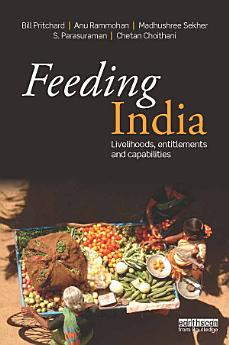Feeding India: Livelihoods, Entitlements and Capabilities
Über dieses E-Book
This book takes on this challenge. It explains how India’s chronic food security problem is a function of a distinctive interaction of economic, political and environmental processes. It contends that under-nutrition and hunger are lagging components of human development in India precisely because the interfaces between these aspects of the food security problem have not been adequately understood in policy-making communities. Only through an integrative approach spanning the social and environmental sciences, are the fuller dimensions of this problem revealed. A well-rounded appreciation of the problem is required, informed by the FAO’s conception of food security as encompassing availability (production), access (distribution) and utilisation (nutritional content), as well as by Amartya Sen’s notions of entitlements and capabilities.
Autoren-Profil
Bill Pritchard is Associate Professor of Human Geography in the School of Geosciences, University of Sydney.
Anu Rammohan is Professor of Economics in the School of Business, University of Western Australia.
Madhushree Sekher is Professor and Chairperson of the Centre for Social Exclusion and Inclusive Policies, Tata Institute of Social Sciences, Mumbai.
S. Parasuraman is Director, Tata Institute of Social Sciences, Mumbai.
Chetan Choithani is a doctoral candidate in Human Geography in the School of Geosciences, University of Sydney and a holder of the Prime Minister’s Australia-Asia Endeavour Fellowship.





